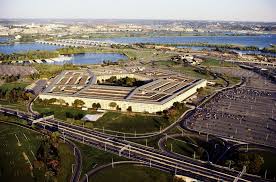Pentagon Acknowledges Sending Openly Gay Service Members To War
Acknowledgement Follows Discovery of Regulation Ordering Commanders Not to Fire Gays
SANTA BARBARA, CA, – An official military spokesperson has acknowledged that the Pentagon is sending openly gay service members into combat in Iraq. Kim Waldron, of the U.S. Army Forces Command at Fort McPherson, said that, “The bottom line is some people are using sexual orientation to avoid deployment. So in this case, with the Reserve and Guard forces, if a soldier ‘tells,’ they still have to go to war and the homosexual issue is postponed until they return to the U.S. and the unit is demobilized.” Waldron’s statements were reported in today’s edition of the Washington Blade.
Waldron’s comments follow the discovery of a controversial regulation halting the discharge of gay soldiers in units that are about to be mobilized. That regulation, contained in a 1999 “Reserve Component Unit Commander’s Handbook” and still in effect, states that if a discharge for homosexual conduct is requested “prior to the unit’s receipt of alert notification, discharge isn’t authorized. Member will enter AD [active duty] with the unit.” The 1999 document was obtained by researchers at the Center for the Study of Sexual Minorities in the Military (CSSMM), a think tank at the University of California, Santa Barbara.
Although the “don’t ask, don’t tell” policy remains in effect, Waldon’s acknowledgement appears to confirm that in some cases, the Pentagon ignores the law by retaining service members who say that they are gay. Statistics confirm that during the present war, as has been the case in every war since World War II, gay discharges have fallen during the conflict and then increased during peacetime. However, prior to Waldron’s acknowledgement, official spokespersons often denied that the military intentionally sends gays to fight despite the existence of a gay ban.
According to Aaron Belkin, Director of the CSSMM, “The military has claimed for years that allowing openly gay and lesbian service members to serve in uniform would undermine unit cohesion. During wartime, however, when cohesion is most important, the Pentagon retains gays and lesbians.”
